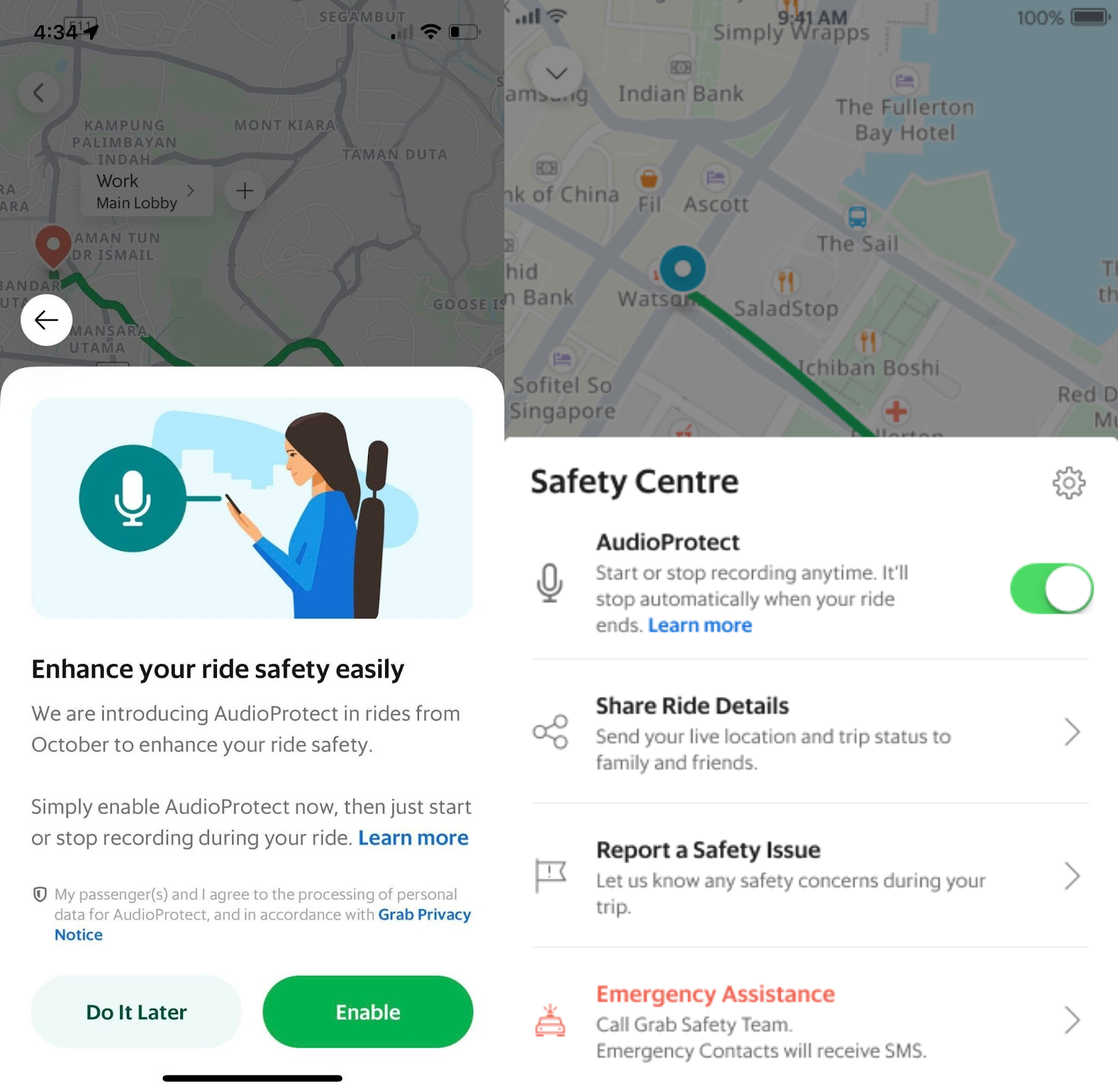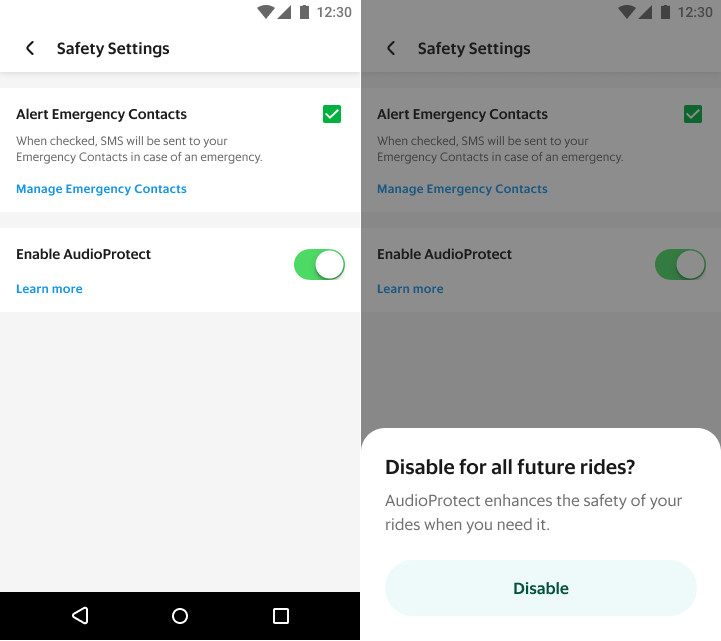What AudioProtect does is that it will use your phone’s microphone (as well as the driver’s) to record audio throughout your whole ride. If some sort of incident were to occur and be reported, the recording will be used as evidence for the investigation. The audio files will be stored on your phone, but you won’t be able to access them as they will be encrypted. The files will only be uploaded to Grab’s system in the case where a safety incident is reported, with access only given to Grab-authorised personnel, law enforcement officials, and government authorities for investigation purposes. The recordings will be kept on your device for 10 days at a time and will be automatically deleted if no report is made within that period. In the case where you do file a complaint or dispute, the files will be stored on the e-hailing firm’s servers for investigation for up to six months, after which they will be automatically deleted. Interestingly, AudioProtect requires both the passenger and driver to enable the feature for recording to occur. This could be a weakness in the feature as bad actors could just choose to disable it entirely to avoid having their actions recorded, but given that it is still in beta, this might not be the final implementation when the final rollout comes around. Keep in mind that if you enable it for a ride and disable it after it has started, AudioProtect will only be disabled for future rides but it will still keep recording the ongoing ride. Users will be able to turn the feature on or off entirely in the safety settings or they can choose to enable it for individual rides. There have been several cases in the last few years of passengers getting harassed or even assaulted, so a new safety tool such as AudioProtect is definitely a welcome addition for users to feel safer. Currently, the pilot is only being run with select passengers in Penang and Johor, but Grab says it should be launching in October. Update: Grab has clarified that the October timeframe will be for the launch of the Penang and Johor trial, not a general rollout. (Source: Grab)

